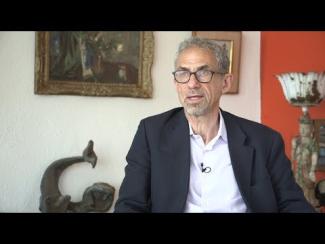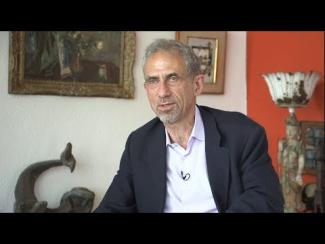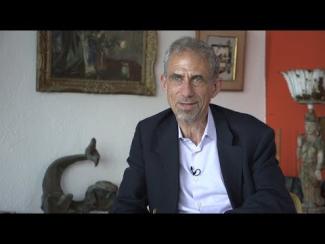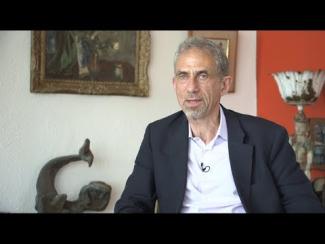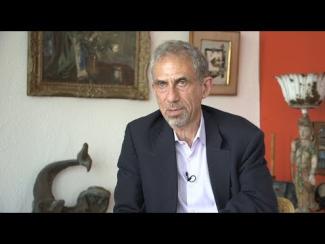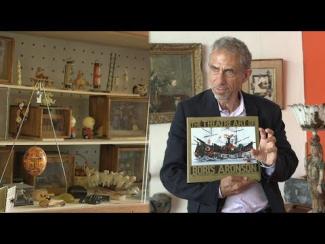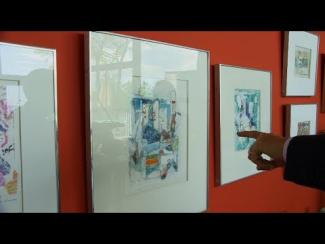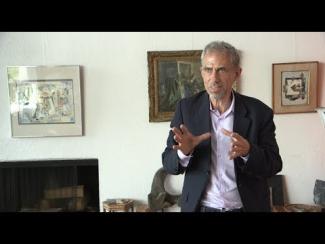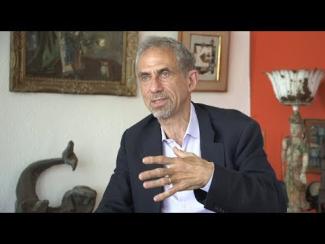The Yiddish Book Center's
Wexler Oral History Project
A growing collection of in-depth interviews with people of all ages and backgrounds, whose stories about the legacy and changing nature of Yiddish language and culture offer a rich and complex chronicle of Jewish identity.
“No One’s Going to Be Interested in Tevye and His Five Daughters”: Boris Aronson Sending Scripts to His Son at Camp
Watch now:
Marc Aronson, son of Yiddish theater set designers Boris and Lisa Aronson, shares a story from the summer he went to camp in California, when his father sent him 2 scripts to look over, including one for a play based on Tevye. Marc told his father that no one would be interested in Tevye's story, and luckily Boris disregarded his advice and produced Fiddler on the Roof.
This is an excerpt from an oral history with Marc Aronson.
This excerpt is in English.
This interview is part of the Yiddish and the Arts: musicians, actors, and artists series.

